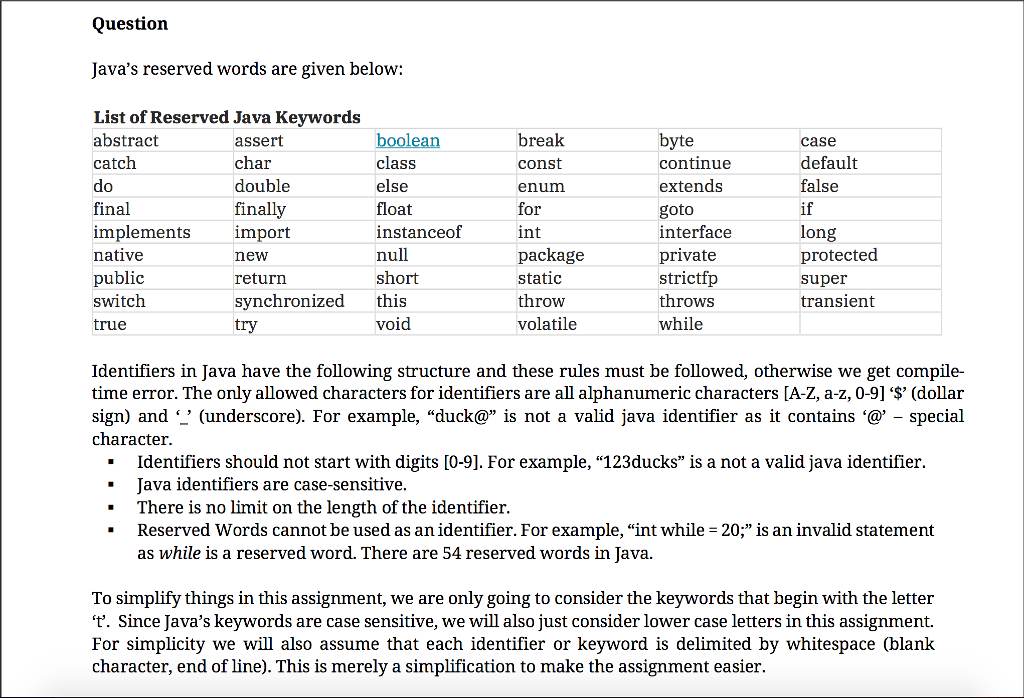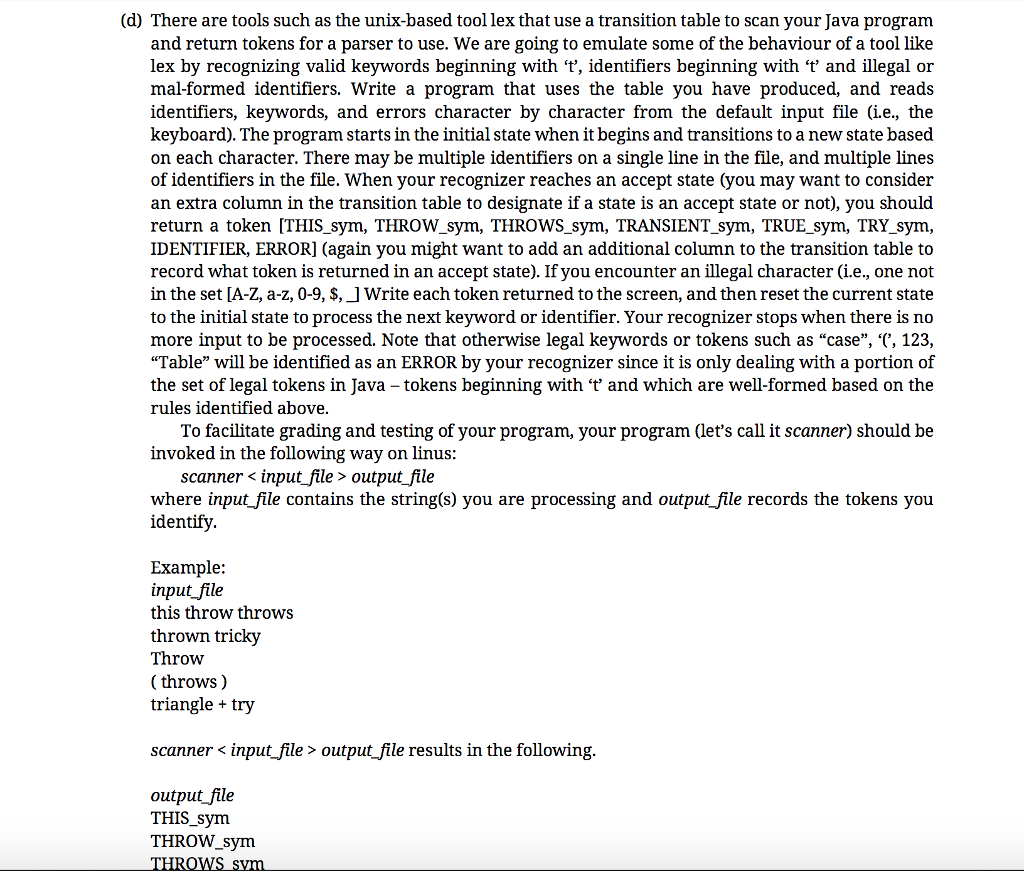


Question Java's reserved words are given below: List of Reserved Java Keywords abstract catch boolean class else float instanceof nu short break const enum for int package static throw volatile byte continue extends assert char double finally import new return synchronized this try case default false if long protected super transient 0 final implements native ublic switch true interface private strictfp throws while void Identifiers in Java have the following structure and these rules must be followed, otherwise we get compile- time error. The only allowed characters for identifiers are all alphanumeric characters [AZ, a-z, 0-9] S' (dollar sign) and .' (underscore). For example, "duck@" is not a valid java identifier as it contains @-special character * Identifiers should not start with digits [0-9]. For example, "123ducks" is a not a valid java identifier. . Tava identifiers are case-sensitive * There is no limit on the length of the identifier * Reserved Words cannot be used as an identifier. For example, "int while -20;" is an invalid statement as while is a reserved word. There are 54 reserved words in Java. To simplify things in this assignment, we are only going to consider the keywords that begin with the letter 't'. Since Java's keywords are case sensitive, we will also just consider lower case letters in this assignment. For simplicity we will also assume that each identifier or keyword is delimited by whitespace (blank character, end of line). This is merely a simplification to make the assignment easier Question Java's reserved words are given below: List of Reserved Java Keywords abstract catch boolean class else float instanceof nu short break const enum for int package static throw volatile byte continue extends assert char double finally import new return synchronized this try case default false if long protected super transient 0 final implements native ublic switch true interface private strictfp throws while void Identifiers in Java have the following structure and these rules must be followed, otherwise we get compile- time error. The only allowed characters for identifiers are all alphanumeric characters [AZ, a-z, 0-9] S' (dollar sign) and .' (underscore). For example, "duck@" is not a valid java identifier as it contains @-special character * Identifiers should not start with digits [0-9]. For example, "123ducks" is a not a valid java identifier. . Tava identifiers are case-sensitive * There is no limit on the length of the identifier * Reserved Words cannot be used as an identifier. For example, "int while -20;" is an invalid statement as while is a reserved word. There are 54 reserved words in Java. To simplify things in this assignment, we are only going to consider the keywords that begin with the letter 't'. Since Java's keywords are case sensitive, we will also just consider lower case letters in this assignment. For simplicity we will also assume that each identifier or keyword is delimited by whitespace (blank character, end of line). This is merely a simplification to make the assignment easier









